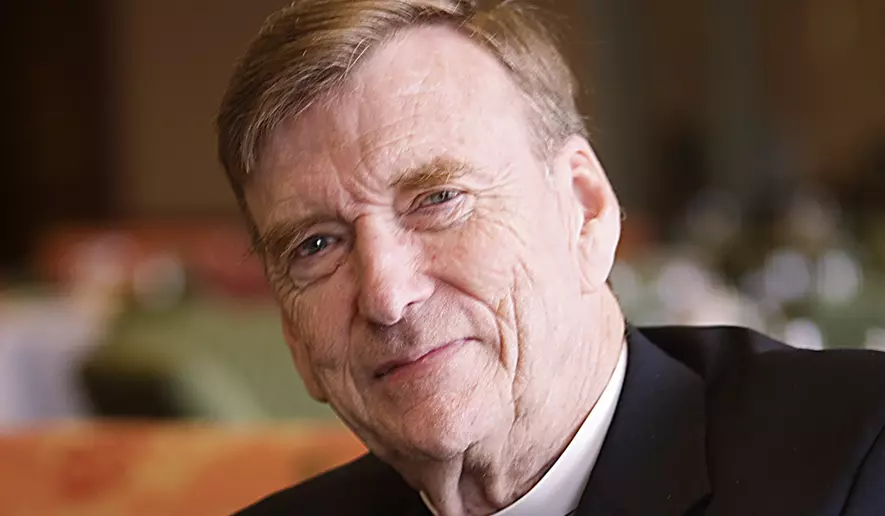Bishop John Shelby Spong, an Episcopal Church prelate whose liberal views rankled orthodox Episcopalians and others, died in his sleep Sunday morning, St. Paul’s Episcopal Church in Morris Plains, New Jersey, announced.
Bishop Spong was 90 and lived in North Carolina, reports indicate.
Ordained an Episcopal priest at the end of 1955 in North Carolina, he was consecrated as a bishop in June 1976 in the Diocese of Newark, which he led from 1979 until his retirement in 2000.
During that time, churches in the Newark Diocese lost half their confirmed membership, reports indicated.
The bishop who said “a virgin birth is no big deal” when interviewed by Religion Dispatches in 2016, was known for such statements far removed from the mainstream of Christianity, and sometimes even the teachings of his own church.
“I do not believe that God is a Being sitting above the clouds pulling strings. … I do not believe that human beings are born evil and that only those who come to God through the ’blood of Jesus’ will be saved,” he wrote in the diocesan newspaper in 2000.
Such sentiments are at variance with the Episcopal Church’s own catechism, which says of Jesus, “By his resurrection, Jesus overcame death and opened for us the way of eternal life.”
His 2002 book, “A New Christianity for a New World: Why Traditional Faith Is Dying and How a New Faith Is Being Born,” outlined a 12-point platform that said, among other points, that seeing Jesus as God was “nonsense”; that a Virgin Birth was an “impossibility”; and that Jesus was raised “into the consciousness of God” and not physically, as the Bible states.
In 2013, Bishop Spong told Religion News Service he did not consider any of the Gospel accounts of Jesus’ life reliable.
“All of them were written 40 to 70 years after the crucifixion, in a language that Jesus did not speak, and not by eyewitnesses,” he told the news agency. “I see them more as Jewish interpretive portraits painted by Jewish artists try to capture the essence of this man’s life.”
John Shelby Spong was born in Charlotte, North Carolina, on June 16, 1931. Growing up, he delivered the local Charlotte Observer newspaper to neighbors including the family of Billy Graham, the lanky farm boy who later would grow up to be the 20th century’s most famous Christian evangelist.
Bishop Spong would later slam the literalist view of Scripture held by Rev. Graham, saying in 2000, “If Christianity is to survive … it will have to evolve radically beyond the images employed by Billy Graham.”
He earned a Bachelor of Arts degree from the University of North Carolina at Chapel Hill in 1952, and a Masters of Divinity degree from what is today known as the Virginia Theological Seminary in Alexandria. He did not earn a doctorate but was awarded several honorary doctorates during his career.
His first wife, the former Joan Lydia Ketner, died in 1988. The bishop married his second wife, Christine Mary Bridger in 1990. She survives him. Bishop Spong had five children, although details of their names and present status were not immediately available.
Bishop Spong’s anti-traditional emphasis may have made him the darling of talk show hosts such as Phil Donahue, said Mark Tooley, president of the District-based Institute on Religion & Democracy.
But those views were eclipsed by a cohort of young adults willing to consider possibilities beyond a nihilistic viewpoint, Mr. Tooley said.
“He claimed that he was making it relevant for a new generation who could not believe in the supernatural, often citing his daughters,” Mr. Tooley said of Bishop Spong. “But the irony was that as he was making his case, modernity was ending and postmodernity starting, and his rationalist perspective became passé. There was new openness to the supernatural.”
St. Peter’s Episcopal Church, which announced Bishop Spong’s death, said funeral details were forthcoming.
• Mark A. Kellner can be reached at mkellner@washingtontimes.com.




Please read our comment policy before commenting.